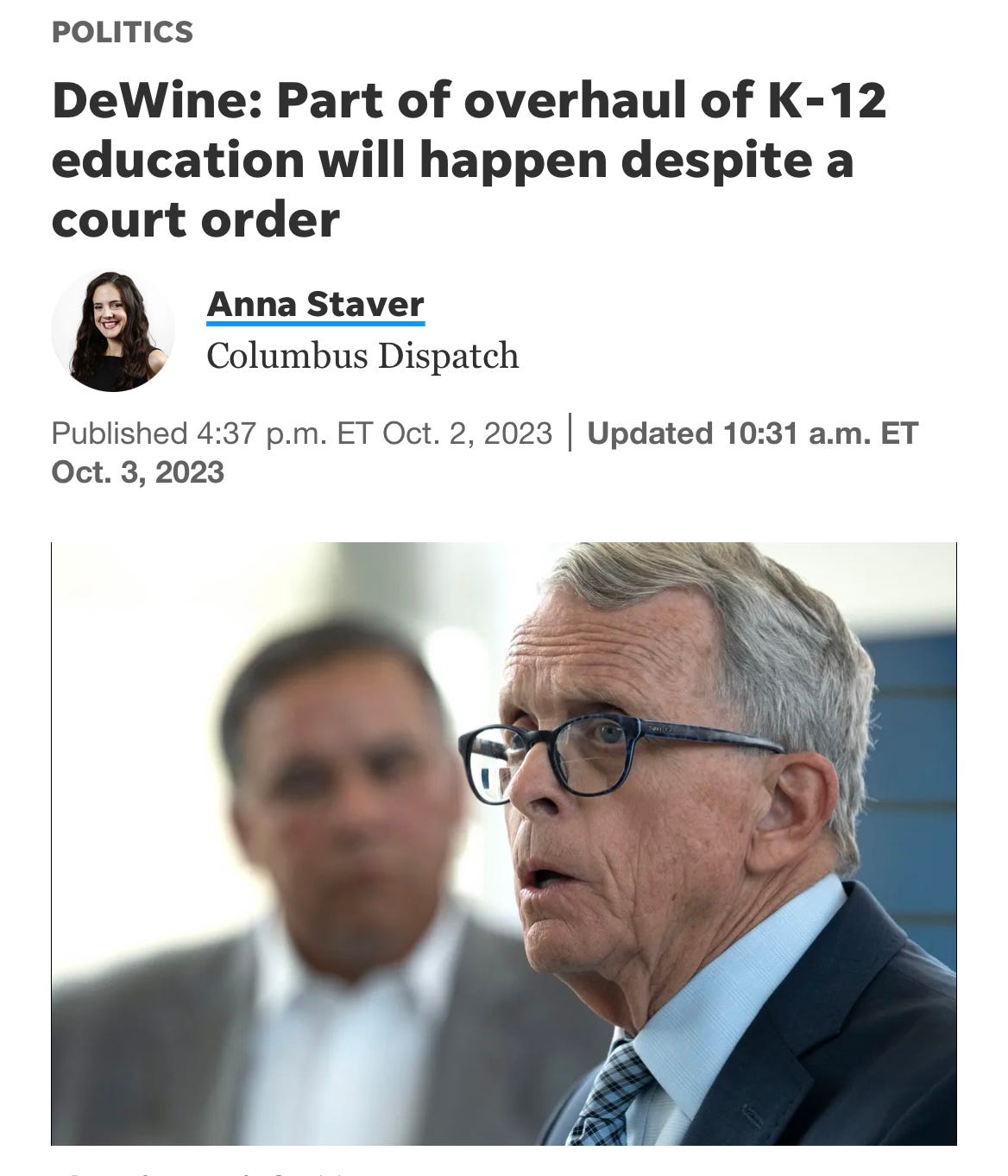Late last year, after new candidates flipped three districts on the Ohio School Board, Ohio’s Governor and Statehouse immediately went to work to strip power from that public body—and bring it within the closed doors of the Governor’s cabinet. (That power grab is now in litigation).
When they made this maneuver, I declared in one of my whiteboards: “Jim Crow is calling Ohio—It Wants Its Old Playbook Back.”
I wasn’t exaggerating.
Not one iota.
Indeed, stripping power from elected officials was one of the immediate responses by the Southern White powers-that-be as soon as Black Americans started voting in higher numbers after the Voting Rights Act. In fact, one of the most important cases regarding the Voting Rights Act involved the precise situation that’s playing out in Ohio—in Mississippi, just as Black residents there began to register and vote in big numbers, the State changed its law so that (among other changes) school boards and superintendents in the state that had been elected would thereafter be appointed.
So yes, DeWine and Ohio Republicans are stealing a play right out of Jim Crow Mississippi’s playbook. The exact same play!
But there’s one big difference.
Ironically, after the Voting Rights Act, discriminatory maneuvers like DeWine’s didn’t last long in the South—thanks in part to that Mississippi case. The Supreme Court, in a breakthrough decision called Allen v. State Bd. of Elections, ruled that Section 5 of the Voting Rights Act (known as the pre-clearance process) required pre-approval of changes just like this type of power grab before they could take effect. And because of that pivotal ruling, thousands of cynical efforts to preserve Jim Crow were halted in their tracks for decades that followed.
Think about it: Can you imagine if DeWine needed to seek and receive pre-approval of his school board power grab before it could happen? From either the Department of Justice or a federal court? His very motivation and the effect of the change scrutinized before it could ever move forward. That’s what Southern States faced for close to 50 years whenever they changed voting or governance rules. And that pre-clearance “traffic cop” process forged enormous change for the good over that time.
Class 16 of my Voting Rights Academy will cover the heyday of the Voting Rights Act, the historic cases that upheld it, how this pre-clearance process worked, and the enormous difference it made in lifting America’s democracy, particularly in the Southern states where the process was applied. You’ll see quickly why the VRA is considered one of the most effective pieces of legislation in the history of the nation.
And this history is especially important for all Americans to understand because only once you appreciate that history, and the effectiveness of the Voting Rights Act, can you understand (as I will explain in Class 17), the deep damage done when the Court dismantled this part of the VRA in Shelby County v. Holder in 2013.
So let’s go back in time and see what happened as a result of the Voting Rights Act’s passage in 1965, passed in the wake of Bloody Sunday in Selma:
The Voting Rights Act — What It Did
While celebrated and praised ever since its passage, the legal specifics of the VRA are often not fully appreciated. Here are the changes it enshrined:
Keep reading with a 7-day free trial
Subscribe to Pepperspectives to keep reading this post and get 7 days of free access to the full post archives.




